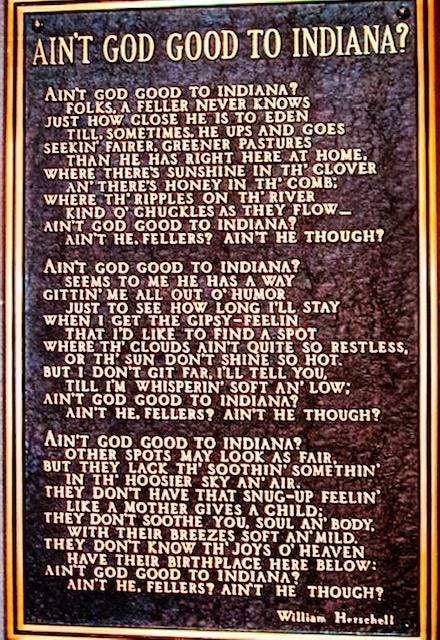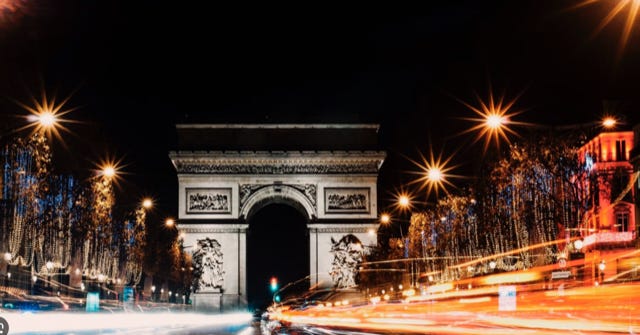The first human to go into space was launched by the Soviet Union for a one-orbit journey around Earth on April 12, 1961. Our Buck Rogers science fiction fantasy world was about to get very, very real.
It was a bracing wake-up call. Suddenly there was this Space Race, and already our country was losing it.
I was in grade school, in Indianapolis, and on the morning after the launch our cavernous corridors were abuzz. This was the biggest story on the planet. We got that. It wasn’t rocket science.
But then, when we got to Mrs. Barton’s class, she refused to discuss it at all. This was only phony Communist propaganda, she confidently assured us. There was no way the Soviets could get ahead of us on something like this, so there was no reason to take up valuable class time with it.
Oh. Did I mention, Mrs. Barton was our science teacher?
Welcome to the Indianapolis of my youth, a somewhat humdrum place where I spent the first 25 years of my life. Three years ago, after nearly half a century exploring the wide world, Barbara and I moved back to give Indianapolis another shot. So far, so good.
I only had the one childhood, so I can’t say whether it was different from where you grew up, but to me, this city always seemed a little bit off. It skipped a beat here and there. It marched to a different drummer.
Let’s be honest, it may have missed the entire drum solo.
Ain't God good to Indiana? "
Other spots may look as fair,
But they lack th' soothin' somethin'
In th' Hoosier sky and air.”
Yeah, that right there. A poem, called “Ain't God good to Indiana?" by William Herschell. He was a journalist at The Indianapolis News, the same newspaper where I would get my start 50 years after he wrote his 1919 love letter to our state.
It’s a good thing William and I didn’t overlap at The News, because if he had shown me a draft of that thing while we were yakking in the men’s room, I would have flushed it.
There is a bronze plaque with this poem on it in the State Capitol. Another copy was actually plastered on the wall of our newsroom. I always hoped it was intended as sarcasm, but just between us, I fear he may have been sincere.
Maybe it’s just me, but it seems that if a poem’s title and first line feature the word “ain’t,” then maybe it ain’t a good fit for the Capitol Building of any state that cares about education.
Growing up, it seemed to me it was never quite enough for us to quietly appreciate our home; instead, we had to blather on and on about how much better we were than the other guys. Cities such as London, Paris and Rio just didn’t stand a chance against a place like ours.
If you ever took a family vacation somewhere outside Indiana, you’d better be prepared to come back with stories about how much better it was here. And if you went overseas… Well, nobody ever did, although my grandparents did go to Hawaii, once. Turned out, Indiana was much nicer.
This competitive attitude was so ingrained that when a new theater production would come to our performing arts venue, the review from opening night often started with something like, “Move over, Broadway, Indianapolis now has…”
Whatever it was that we now had, Broadway should be moving over for it, although I don’t recall that it ever did.
(Some other city, not Indianapolis)
If you like your schmaltz a bit schmaltzier, here are some lines from a locally beloved song, “Back Home Again in Indiana,” which many people think is our state song. It isn’t.
The new-mown hay sends all its fragrance
Through the fields I used to roam.
When I dream about the moonlight on the Wabash,
How I long for my Indiana home
If your lunch still hasn’t come up yet, I’ll get out the big gun: James Whitcomb Riley, the “Hoosier Poet.” To grow up in Indiana was to live the life of Riley, so to speak. You’ve seen the beloved musical, “Annie?” That spunky gal, Little Orphan Annie, first appeared in an 1885 Riley poem.
(Little Orphant Annie)
Little Orphant Annie’s come to our house to stay,
An’ wash the cups an’ saucers up, an’ brush the crumbs away,
An’ shoo the chickens off the porch, an’ dust the hearth, an’ sweep,
An’ make the fire, an’ bake the bread, an’ earn her board-an’-keep;
Riley wrote this poem as “Little Orphant ALLIE,” its main character named after Mary Alice Smith, or “Allie” for short. Allie had lived with Riley’s family for some time, as a boarder.
A typesetting error by the publisher turned Allie into Annie, and the rest is history.
I’m serious, you can look that up. You might also want to look up “indentured servant,” since that seems like what Annie was.
“Bob, honey, I’m just too tired to shoo these chickens off the porch and dust the hearth. And look at all these filthy cups and saucers! Can you please stop at the orphanage and pick one of them up on your way home from work?”
Indianapolis in my youth wasn’t exactly a cornucopia of diversity. There were some people who weren’t exactly like me, but they didn’t go to my school or live in my neighborhood. I hope they lived someplace where at least they could learn about cosmonauts in science class.
Back then, Indianapolis had a vast array of ethnic restaurants. Well, okay, we had Chinese. Once a month, on a payday, Dad would go to the Mandarin Inn and bring home Chop Suey, Egg Foo Young and Shrimp Fried Rice. For all I knew, that was their entire menu.
There were also some Italian restaurants, but our parents told us that kind of food wasn’t very good, so we took their word for it and didn’t bother with those places.
Later, when “pizza pie” finally became all the rage and it could no longer be ignored, Mom made her own from a recipe on the Bisquick box. She was right - it wasn’t very good. In fairness to real pizza, hers was essentially tomato sauce poured over coffee cake.
That was the Indianapolis I knew. I tend to view my life as routine experiences punctuated by memorable news stories. I began today’s piece with one of those, and I will end it the same way, with the Night of the Endless Sirens.
On October 31, 1963, 60 years ago next month, some 4,000 people were crowded into the Coliseum at the Indiana State Fairgrounds to watch a Holiday on Ice spectacular. Beneath the grandstands, propane gas was leaking from a tank stored in a supply room, eventually coming into contact with an electrical heating element in the concession area.
The explosion catapulted people from their seats, propelling them through the air and onto the brutal ice. Eighty-one people died and more than 400 were injured.
Some survivors said they had thought the people flying through the air were somehow a part of the extravaganza’s grand finale, until they saw the blood.
I can tell you, we thought this disaster, right in our own back yard, was the very biggest thing we were ever, ever going to live through in our entire lives. What on Earth could possibly match it? This tragedy was going to define our generation.
We were absolutely certain of this until three weeks later, when John Fitzgerald Kennedy, the President of the United States, was assassinated, in Dallas.
Move over, Holiday on Ice.








At least your mom used tomato sauce. On our farm in rural Illinois, we tried to make pizza with ketchup.
We lived through good times and bad times and blessed we were to grow. For the world was constantly changing, more than we’d ever know.